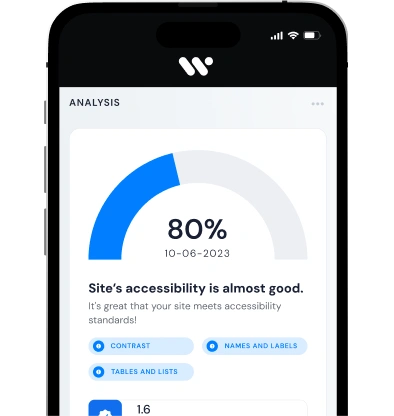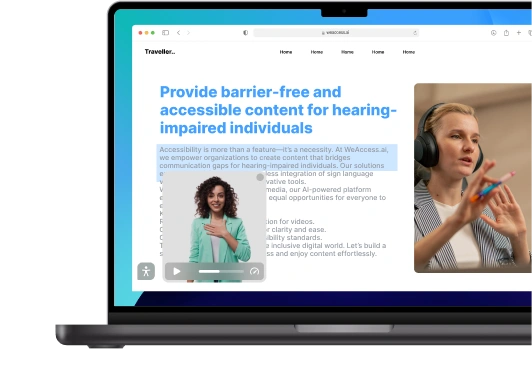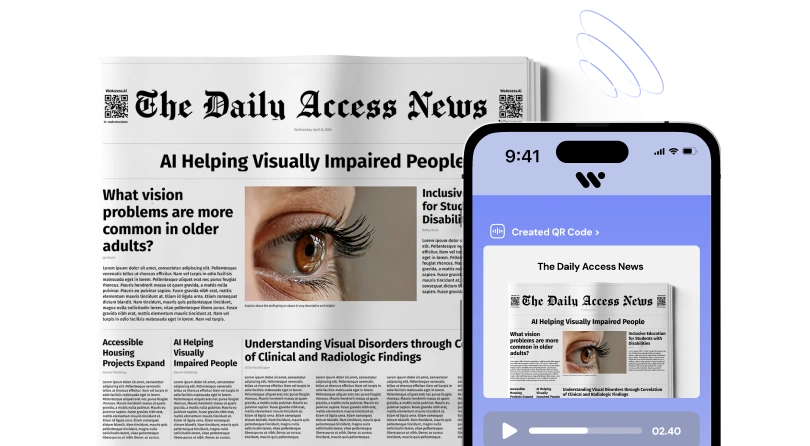In the intricate web of business regulations, the term ADA compliance often sparks interest and questions. As a business owner, you may wonder whether all businesses are obligated to adhere to ADA standards. Let's embark on a comprehensive journey through ADA requirements, exemptions, and the implications for businesses of all sizes.
Understanding ADA Compliance
The Americans with Disabilities Act (ADA) is a federal law that ensures equal opportunities for individuals with disabilities. However, the question lingers: Does it universally apply to all businesses, irrespective of their size?
ADA compliance involves making reasonable accommodations to allow individuals with disabilities to access goods, services, and facilities. It covers a broad spectrum, from physical access to communication barriers, ensuring inclusivity in various aspects of business operations.
The Mandate vs. The Choice
Is ADA compliance a compulsory mandate or a choice businesses can make? While it may seem like an additional burden, understanding that ADA compliance is about creating an inclusive environment can shift the perspective. It's not just a legal requirement; it's a commitment to equal access for all.
Businesses that prioritize ADA compliance position themselves as advocates for inclusivity, fostering positive relationships with customers and creating a workplace culture that values diversity.
Deciphering ADA Small Business Exemption
For small businesses, the prospect of ADA compliance can be daunting. Fortunately, ADA exemptions exist for qualifying small businesses. To decipher this process, businesses need to understand the criteria and steps involved in securing exemption status.
Exemptions are not a loophole but a recognition that small businesses may face unique challenges in meeting all ADA requirements. By understanding these exemptions, businesses can navigate the compliance landscape more effectively.
ADA: What's in a Name?
ADA stands for the Americans with Disabilities Act, but what does it mean for your business? Beyond a legal framework, ADA signifies a commitment to inclusivity, a recognition that everyone, regardless of ability, deserves equal opportunities.
Web Accessibility: Bridging the Digital Divide
While ADA compliance traditionally addresses physical spaces, it has evolved to encompass the digital realm. Web accessibility is a crucial component, ensuring that individuals with disabilities can navigate and interact with online content seamlessly.
In an era dominated by digital presence, businesses must prioritize web accessibility. This involves designing websites and online platforms that consider various disabilities, including visual and auditory impairments. Features such as screen reader compatibility, alternative text for images, and navigable keyboard interfaces contribute to a more inclusive online experience.
Wheelchair Accessibility: A Must for All?
One common misconception is that wheelchair accessibility is only relevant to certain businesses. In reality, ADA requirements extend to almost all businesses. Ensuring wheelchair accessibility is not just about compliance; it's about creating a welcoming space for everyone.
Navigating ADA Requirements for Businesses
Understanding ADA requirements involves a multifaceted approach. From physical access to effective communication, businesses need to navigate a range of considerations to ensure compliance. This includes accessible entrances, restrooms, parking spaces, and accommodation for service animals.
The goal is not merely to meet the legal requirements but to create an environment that prioritizes the dignity and independence of individuals with disabilities.
Who is Exempt from ADA Compliance?
While ADA compliance is generally expected, there are instances where businesses may be exempt. Understanding these exemptions requires a careful examination of specific criteria and circumstances.
Certain small businesses may qualify for exemptions, but it's crucial to note that exemptions are not blanket permissions. They often require businesses to make reasonable accommodations to the extent possible.
Empowering Handicapped Business Owners
ADA compliance goes beyond serving customers; it extends to empowering business owners with disabilities. The ADA ensures that individuals with disabilities have equal opportunities to start and operate businesses, fostering entrepreneurship and economic independence.
ADA Retail Requirements: What You Need to Know
For businesses in the retail sector, ADA requirements have specific implications. Understanding these requirements is essential to create an inclusive shopping experience. This may involve accessible store layouts, clear signage, and accommodating checkout counters.
Demystifying ADA Compliance in the Workplace
The workplace is a focal point for ADA compliance. From accessible workstations to reasonable accommodations for employees with disabilities, businesses must prioritize inclusivity within their organizational culture.
Private Clubs and the ADA Conundrum
Private clubs may wonder about their obligations under ADA. While there are some exemptions, particularly in areas not accessible to the public, private clubs are generally subject to ADA regulations where public access is granted.
Exploring ADA Exceptions
In certain situations, businesses may encounter exceptions to ADA rules. These exceptions may apply to specific circumstances or conditions, highlighting the nuanced nature of ADA compliance.
The ACT Business Owners Should Know About
In addition to ADA, business owners should be aware of the Rehabilitation Act of 1973. This act prohibits discrimination on the basis of disability in programs conducted by federal agencies and those receiving federal financial assistance.
Understanding the broader legislative landscape ensures comprehensive compliance and fosters an inclusive business environment.
ADA: More Than Just Physical Compliance
The ADA widget is a tool designed to make online content accessible to individuals with disabilities. It includes features that enhance the user experience for those with visual, auditory, or cognitive impairments.While physical accommodations are vital, ADA compliance extends beyond the tangible. It encompasses a commitment to providing equal opportunities, eradicating discrimination, and fostering an environment where individuals with disabilities can thrive.
Ensuring Inclusivity for Disabled Entrepreneurs
Creating an inclusive business environment goes beyond compliance—it involves actively ensuring that disabled entrepreneurs have equal opportunities. This includes providing mentorship programs, accessible resources, and tailored networking opportunities.
Conclusion
In conclusion, ADA compliance is not merely a legal obligation but a commitment to inclusivity. Whether you operate a small business or a large enterprise, understanding and embracing ADA requirements contribute to creating a more accessible and welcoming society.



















